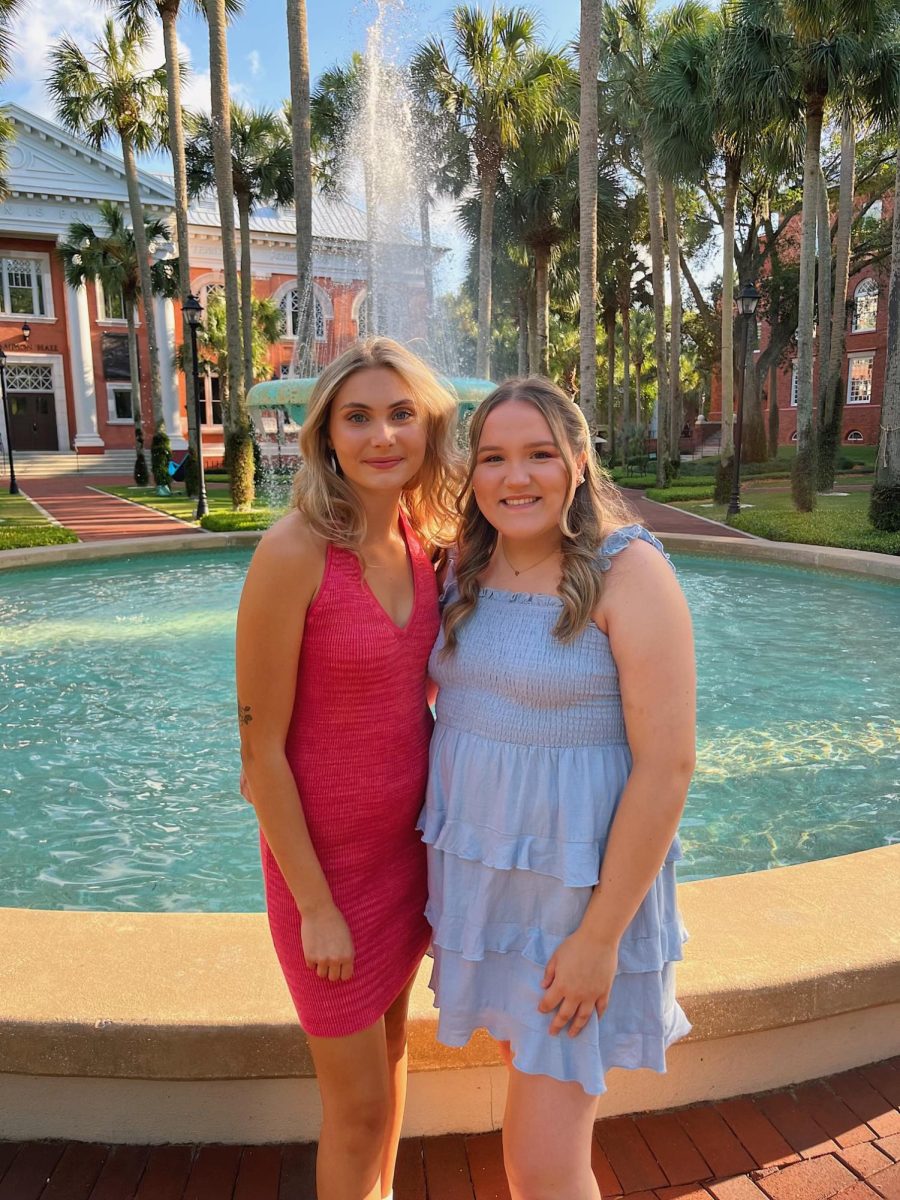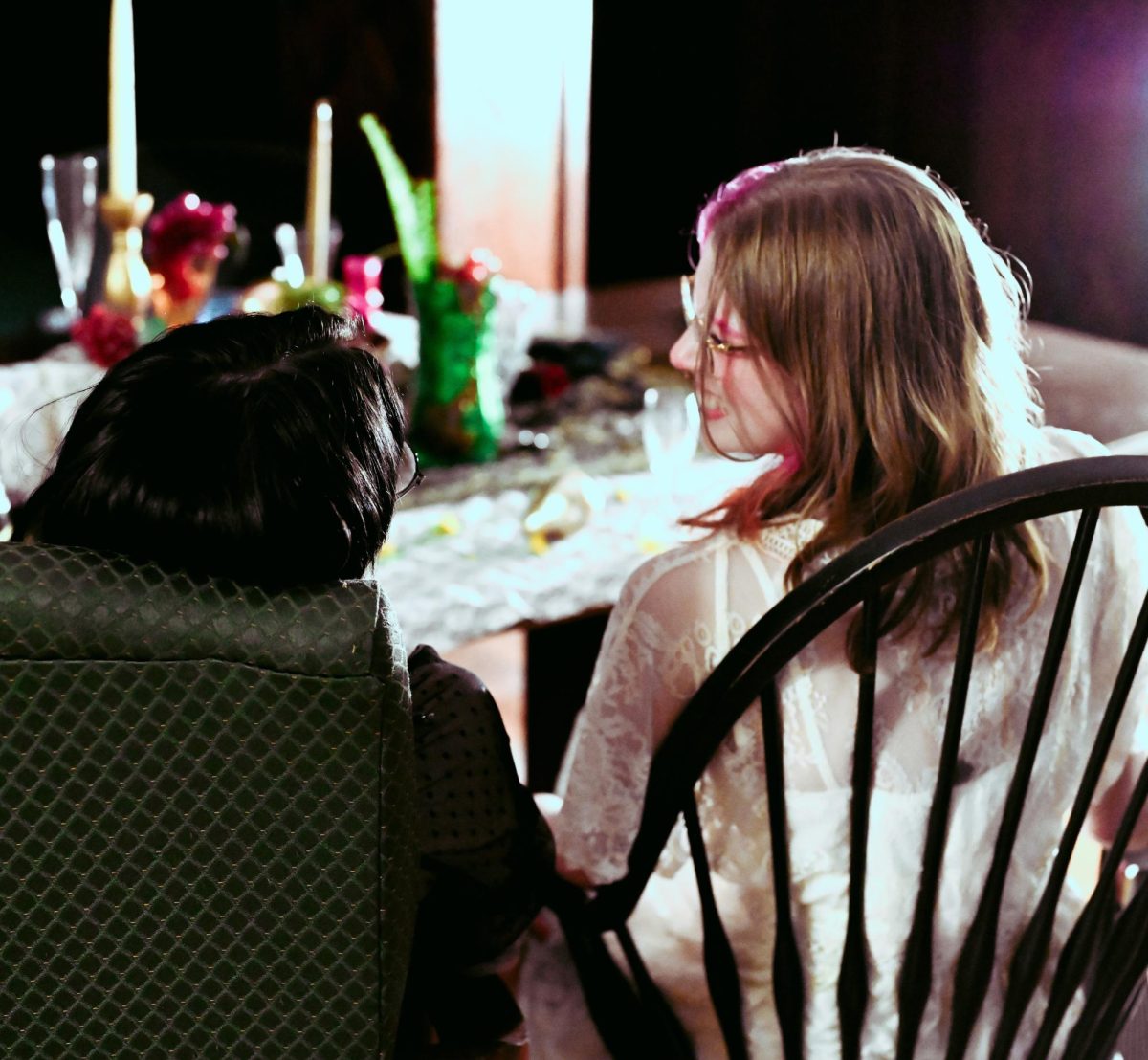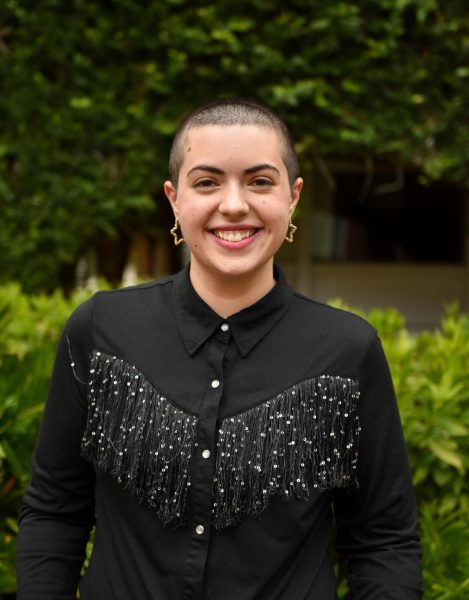Question by Sara Ward ’27: What are the top three things you’re constantly checking on to do the job?
Dear Future Executive Editor,
As the Executive Editor for the Reporter, I felt like I was always checking on something. It’s different for everyone, but for me, it wasn’t the type of position where you can clock in, do your work and clock right out – leaving all things work-related at the door. You’re working with a team of both writers and designers, and things left unchecked or unfinished can easily affect the timeline of finishing the magazine. With this in mind, I overthought a lot and constantly double-checked. But, the top three things that had me opening my text messages or the Reporter drive in class are easy to remember… Especially because I looked at these same three things earlier this morning before writing this letter.
Looking at the progress of each piece is a must – especially ensuring that it correlates with the upcoming deadline. Much love to the current Reporter staff who’ve stayed up-to-date with their deadlines and made my job so much easier! Though, even with that, it was always a thought on my mind when we’d reach a weekly deadline, because the lateness of even one writer doesn’t just prolong the editor’s job, but also the designer’s job on the other side of the team as well.
Meetings are definitely a close second on my Reporter mental checklist. Budget sections, design sketches, staff and editor check-ins, and final mag looks are meetings that you’ll schedule throughout the magazine process, and these are necessary to move on to the next step. So, double-checking and making sure that people can still make it the day before was something that I usually did. Because, well, people have lives, people forget or it’s too early in the morning – so, yes, that was something on my mind until the meeting was done and complete.
I’d call the last thing on my checklist the five-in-one package. This consisted of the dear reader segment, staff question, playlist, cover stories and taglines. Now, these are the few things in the magazine that aren’t stories and are more of little specials in every Reporter magazine. And, since they aren’t stories written by staff, it’s usually up to you and the managing editor to get these done. So, that means asking staff their thoughts and preferences on the dear reader segment, staff question and playlist, and then playing around with different ideas for the stories that’ll find a home on the front cover and catchy description lines for each story. It was a bit tricky remembering to do some of these because they aren’t typical stories that have deadlines.
Now, all of this to say, that this was MY thought process and mental checklist. It could be totally different for you or maybe the same exact thing. I know it may seem like a lot, but with practice and repetition, it gets so much easier and honestly, so beautiful. Always remember that it’s not just you and to rely on your team members – you’re all in this together. I’m so excited to see the content that you will put out, and I wish you the bestest of luck!
Cheering for You!
Alis Cadena ’26
Question by Reagan Shivers ’26: How do I become the mentor after being the mentee?
Dear Future Managing Editor,
One of the most important parts of becoming a mentor is always having your own mentors to rely on. I can immediately call to mind five people I consider my mentors in different areas. I have a mentor for my academic future (Dr. Mieras), a mentor for shopping (Lili Sheridan ’24), a mentor for my editing (Our very own Ciara Kelley ’24), a mentor for ‘big girl’ things (Isabelle Barnett ’22) and a mentor I can always fall back on (My Mom). If you find yourself being leaned on without anyone to lean on yourself, you’ll fall.
Something important to remember is that you cannot force anyone to be a mentee, they have to want your help. There have been a ton of times that I’ve offered a helping hand and nobody reached out to grab it – and that’s okay. Sometimes, you might even be frustrated, thinking, “I know exactly what you should be doing!” Over time I’ve learned that if they don’t want to be your mentee, leave them be.
To specifically answer your question about transitioning into the mentor role, I would say don’t rush into it. I ran full force into college, joined a bunch of clubs and became president of one way too fast. That was a giant mess because I was being a mentor just for the sake of doing it, and I hadn’t really earned the knowledge to fill that position yet. When I met you, I didn’t make it my mission to be your mentor – I just recognized that you’re in the same shoes that I was a few years ago, and I wanted to tell you and ask you all the things I wish I had known earlier.
A (very) short list of all the things I told you and asked you: Here’s all the research grants in the history department! Has anyone told you about public history internships? Have you thought about grad school? Have you heard of Phi Alpha Theta? This local scholarship fits you perfectly, you should apply! Are you slowing down and enjoying college? You’re really good at writing, you should apply to this thing called the Reporter!
To your credit, you have reached out and accepted my helping hand, so for that you get an A+ in the mentee department. You’ll be a great mentor to lots of people in your life, whether they’re in the Reporter, in the history department or you just run into them somewhere else in the world.
My general tips summed up are: never be without a mentor of your own to rely on, you can only mentor people who want it and spend enough time investing in yourself so that you actually have wisdom to offer.
Always a Text Away,
Carlye Mahler ’24











